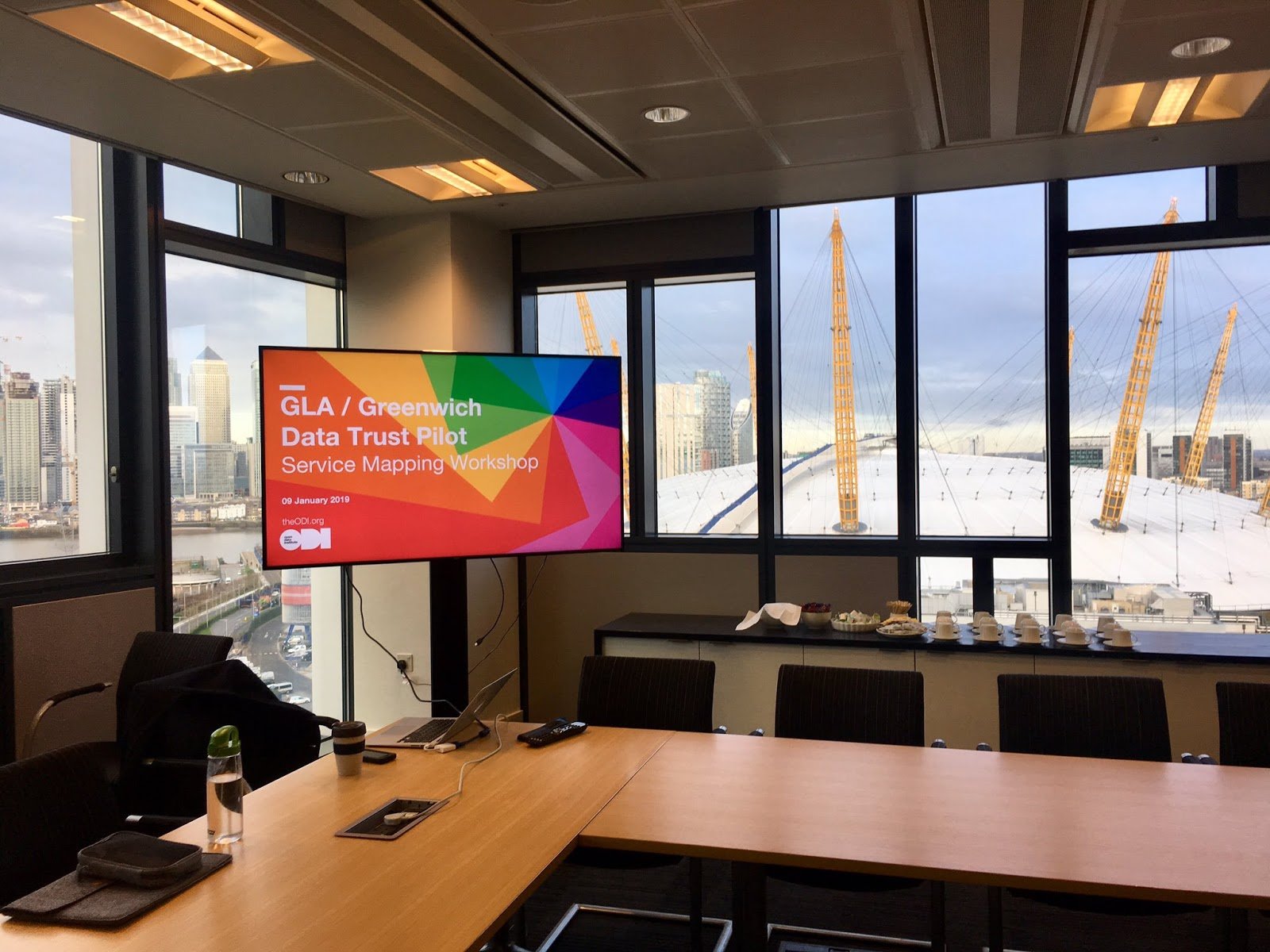
Ed Parkes, Data Strategy and Open Innovation Consultant, explains how we are working with the Greater London Authority and the Royal Borough of Greenwich to enhance the collation and use of data in the borough – using sensors and introducing the idea of a ‘data trust’.
As announced at the ODI Summit 2018, and as part of a broader project on data trusts, the ODI is working with the Royal Borough of Greenwich and the Greater London Authority (GLA) to test the idea of a ‘data trust’ which would include data from Greenwich public services.
At the ODI, we define a data trust as a legal structure that provides independent third-party stewardship of data.
This blog post is an opportunity to tell you a bit more about the project, where we’re up to and to introduce the team working on it. I’m Ed and I’m the lead consultant for this pilot and I’ll be blogging throughout about progress and exposing some of our thinking as it develops.
This pilot will be considering the data collected within the EU Sharing Cities programme – a consortium including the GLA and Greenwich. The first stage of our investigation was to understand the detail of the Sharing Cities programme and the data being collected in Greenwich. The programme is focused on a number of services in the borough and installing sensors which will make these services more efficient.
On 9 January we brought together key people – hosted by the Royal Borough of Greenwich – to map out and explore two of these services. This process really helped us begin to understand the arrangements currently being developed in the borough. We were also fortunate to have an amazing view for the day!

Our next phase is to build on this work and follow up with colleagues to collate any missing information and to speak to other experts within the organisations. We want to make sure we have a detailed understanding of the current arrangements before we go much further in thinking about the details of a design of a data trust. Sonia is the user researcher who is ably leading this part of the work.
Design, decision-making and legal considerations
In terms of other progress, we’ve been joined recently by two external organisations who will be contributing to the pilot in specific ways. We’re pleased to be working with Simon, Suzannah and Alex from Involve who are our decision-making design partners for this pilot. They will be looking specifically at the how any data trust would go about making decisions on the collection and use of data with a particular lens on whether these decisions need to have a deliberative element – ie how citizens or constituencies could have a say in shaping those decisions.
Their work will include further investigation with key stakeholders and analysis on the basis of their broad experience in this area. Towards the end of the project they will also be testing early ideas with citizens to get a sense of the acceptability of the arrangements we’re putting forward.
In addition, we’re joined by Robert Bryan and Rupert Parker of specialist science and technology law firm BPE who are helping us with the legal aspects of the pilot. They will be advising us on the specific legal considerations in relation to the feasibility of something like a ‘data trust’ in a public sector context. For instance, how would a trust relate to the existing organisations already involved in the collection and use of data (such as the GLA and the Royal Borough Greenwich themselves)? How would trustees relate to the existing councillors in this situation? Questions like this will be a key part of the work that BPE are doing for us.
In terms of next steps on this project, we’re deep into arrangements for the further user research following the workshop. After that there will be a design phase where we will come together as a team and with key contacts in the two organisations to present options for the working of a data trust.
We’re hoping this will be an iterative and co-creative process bringing insights from all experts involved. A key issue I’m keen to focus on is the sustainability model for any potential new organisation – how are they going to attract revenue and what are the motivations for other organisations to use it.
Get involved
If you have any thoughts about our approach or want to feed into our thinking on a specific issue please do get in touch. We’re also planning to do some engagement with potential users of the data in a workshop in March – let us know if you’d like to get involved.